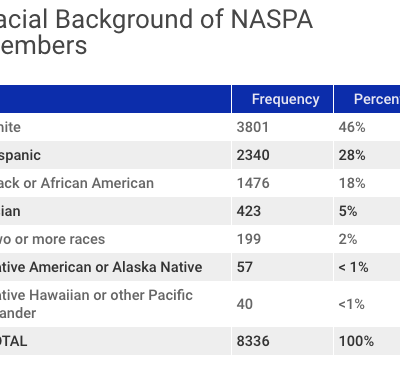NASPA Report Explores the Future of Student Affairs
Title: The Compass Report:Charting the Future of Student Affairs
Source: NASPA: Student Affairs Administrators in Higher Education
NASPA assembled a task force to consider several “change drivers,” including enrollment changes, the collegiate mental health crisis, affordability, and the global pandemic, all of which have impacted the roles and responsibilities of student affairs practitioners and the field as a whole. The task force collected data through focus groups and fielded a national survey of student affairs practitioners to inform findings, address current challenges, and shape recommendations for the future.
The task force identified four critical areas to the future of student affairs: student needs and expectations; social justice, equity, diversity, and inclusion; professional preparation and development; and workforce satisfaction and retention.
Recommendations for implementing changes in these areas include:
Strengthen data capacity to highlight the impact of student support services: Leverage evidence on how student affairs services and programs impact student outcomes and use data on what students say is critical to their success when making decisions.
Operationalize student-centered commitments to justice, equity, diversity, and inclusion: Establish accountability metrics to assess efforts to address systemic and individualized racism on campus and ensure alignment and shared understanding of goals related to justice, equity, diversity, and inclusion across the institution.
Optimize technology to deliver high-quality student experiences: Take an inventory of existing technologies, streamline processes, and use inclusive and flexible design principles when implementing new technology strategies.
Systematically approach the need for greater staff care: Conduct staff capacity and workplace climate assessments to inform changes to organization structure and establish policies that enable flexible work arrangements for staff.
Align student affairs preparation and talent management with the evolving needs of the profession: Provide trainings to enhance capacity of staff and align graduate preparation programs with the emerging needs of students.
To read the full report, click here.
—Danielle Melidona
If you have any questions or comments about this blog post, please contact us.


